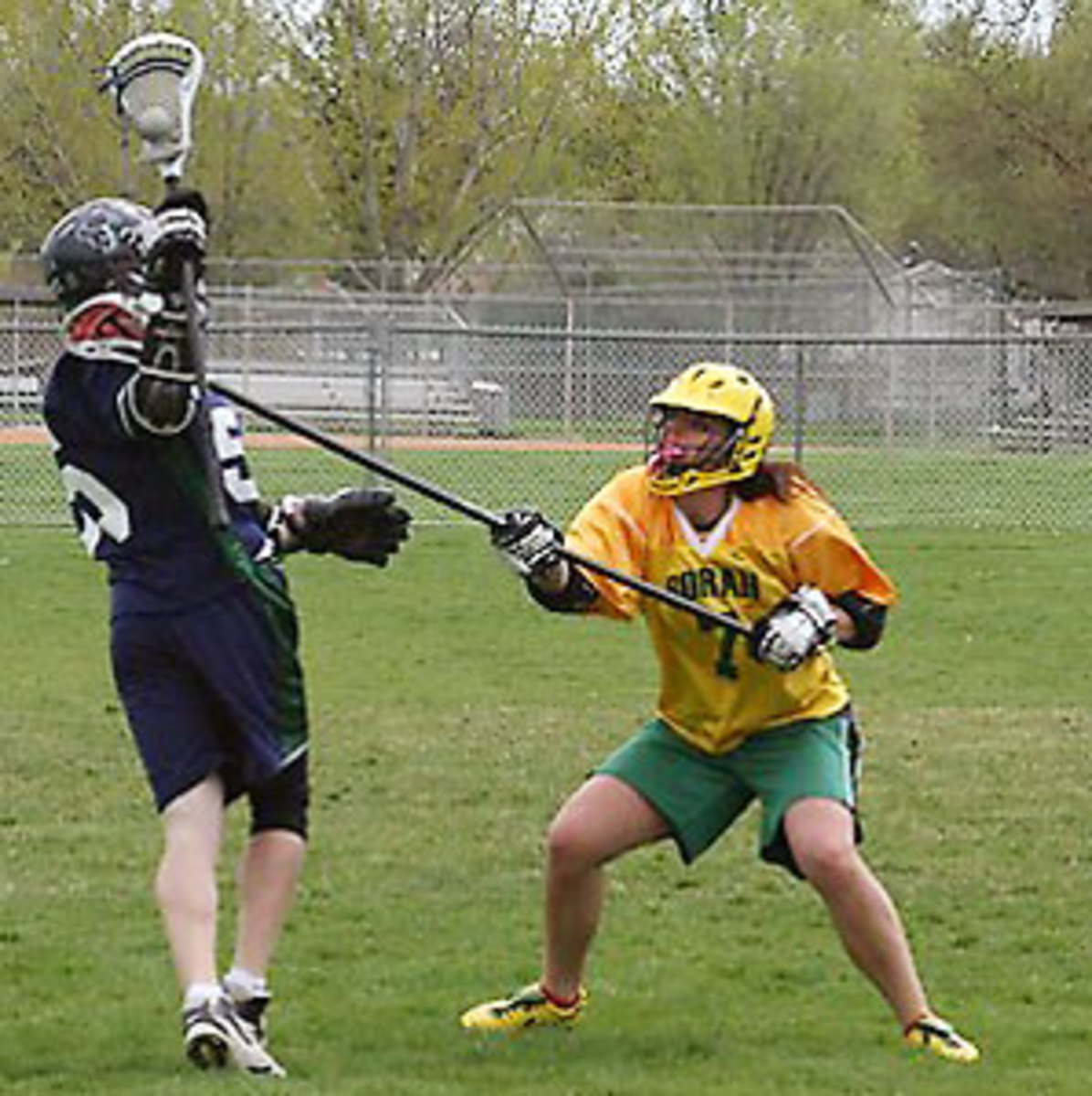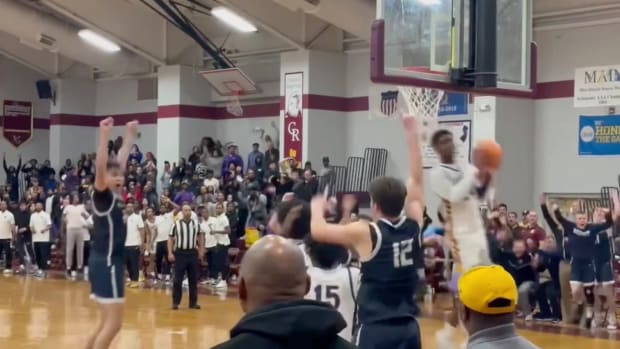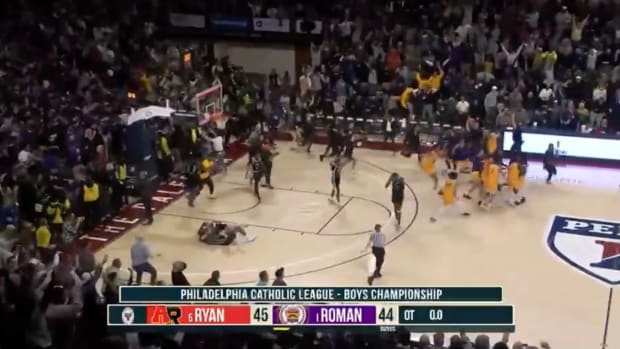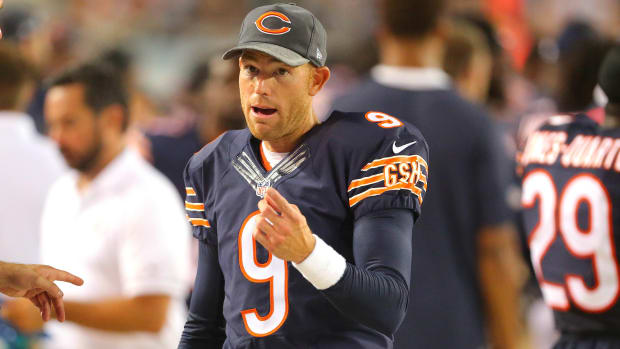
Idaho girl creates controversy by joining boys' lacrosse team
It happened because Sara Maras is not just a cheerleader. She also likes to hit people. She's already 5-foot-8. When she was younger, she played basketball, which is not always a contact sport, but Sara essentially turned it into one. So when a coach at her old school, McCall High, started up a lacrosse team, she decided to try it out. That she was one of only two girls on the team (the other played goalie) didn't really bother her. That they played by the rules of boys' lacrosse rather than girls' lacrosse didn't really bother her, either. In fact, she liked it better that way because there was more contact (in boys' lacrosse, body checking is legal). Fewer players on a shorter field. More helmets. No skirts. In fact, when Sara did see the way girls' lacrosse was played, it didn't interest her much at all.
One day, while walking down the hallway at her new school with a fellow cheerleader, Sara saw a poster advertising boys' lacrosse tryouts. She'd signed up for the girls' team at Borah, but quickly decided it wasn't for her; she called the boys' coach, Erik Jones, and asked him if she could join the team. He told her to come down to practice. Youth lacrosse is a relatively new pastime in Boise -- it is still a club sport at most schools, not yet sanctioned by the Idaho High School Activities Association -- and facing schools with more experienced players, Jones needed all the help he could get.
This is the story of how Sara Maras joined the boys' lacrosse team. In the beginning, everything was astoundingly easy; with a few exceptions, her male teammates accepted her without vocal protest, and once she explained why she wanted to play boys' lacrosse rather than girls' lacrosse -- and once she absorbed their hits during practice and struck back just as hard -- they totally understood. "If I were you," they said, "I'd probably do it, too.
"We trusted her more after that; we felt she was doing the right thing," said one of her teammates, Trevor Hopkins. "She was definitely better than a lot of kids on defense. There may have been some people who didn't fully accept her, but they didn't say anything out loud."
Yet the real problem was not with her classmates; the real problem arose when the adults got involved. Jones petitioned the board of the Treasure Valley Lacrosse League to allow Sara to play, citing the non-discrimination clause in his school's constitution. But in Sara, certain people, including many of the coaches and parents who make up the board, saw a troublesome precedent. They worried about her getting hurt, and they worried about boys being afraid to play at full speed, and they worried about dozens more girls choosing boys' lacrosse over girls' lacrosse -- an unlikely occurrence, but one that could weaken both sports. This is Idaho, an overwhelmingly conservative state, and Sara's petition, according to league commissioner Stephen Smith, raised all kinds of social and political red flags. In Idaho, according to the rules of the state high school athletic association, if you're a girl and a sport is offered for both boys and girls, then you are required to play the girls version of the sport.
"We're a fairly new sport, a club sport, but we try to follow their rules," said Smith, whose job is merely to enforce the whim of the board. In March, the board voted 18-4 to not allow Maras to compete on the boys' team. But Jones, abiding by Borah's charter, chose to allow Maras to play with the junior varsity. Smith planned to suspend Jones for one game each time Maras played with the JV, but then the JV team folded due to a lack of interest and Jones played Mara in a varsity game.
And now everything is at an impasse: Maras has a lawyer on her side, and the board has a lawyer on their side, and no one seems to know what might happen next. Meanwhile, Erik Jones is continuing to coach, and Sara Maras is continuing to play.
It's kind of weird to Maras, all this attention. Speaking on the phone the other day, she was bubbly and effusive and insistent that this is not meant as some kind of grandiose statement. To her, this is about exposing the undeniable reality that girls' lacrosse and boys' lacrosse are two radically disparate versions of the same sport. Both were played by the same rules until the 1930s -- girls' lacrosse is more faithful to the original Native American pastime, but the boys' game evolved into something completely distinct, more physical, more tolerant of incidental contact. In fact, said Steve Stenersen, the president and CEO of USA Lacrosse, the differences are actually far greater than the differences between baseball and softball.
There is not a lot of precedent for girls endeavoring to play boys' lacrosse; it happens on occasion, Stenersen says, but it's not something USA Lacrosse has put a lot of thought into. Mostly, when it occurs, it's in a case like Sara's. Lacrosse is one of the fastest-growing youth sports in the country, and sometimes a girl will learn the game among boys, and then not want to cross over. "I would encourage her to play the girls' game," Stenersen says, "because the girls' game is designed for girls and women specifically."
But all Sara Maras wants to know is, Why she should have to?
In Indiana in 2009, a 15-year-old girl filed a lawsuit for the right to try out for her baseball team, citing Title IX and the Equal Protection Clause of the Constitution. Eventually, the Indiana association dropped the suit, figuring it would lose, and while the girl didn't make the team, she was afforded the opportunity. Nobody would ever refer to baseball and softball as the same game, and nobody expects an influx of females abandoning softball. But if a girl can throw a fastball that makes her worthy of a spot on the baseball team, how is it just to deny her that chance? And if girls' and boys' lacrosse are even more disparate than baseball and softball, why shouldn't the same precedent apply?
It's not just Sara who feels that way. Soon after her petition was denied, Jones called a team meeting to discuss whether Borah was willing to potentially forfeit its season in order to allow Sara on their team. They sat in a circle, and Sara felt so stupid, and she cried, and she had to explain, once again, why she was insistent about playing this version of the sport she'd come to love.
What happened next stunned her. What happened next, she says, was a miracle. What happened next was that everyone voted in her favor.
"If they can't man up and play against a girl," someone said, "that's their problem."



